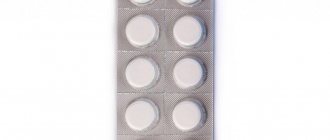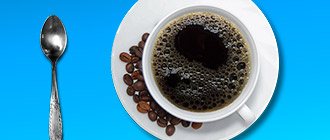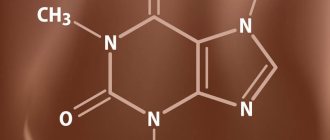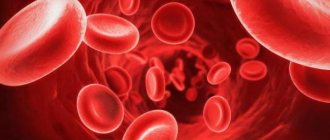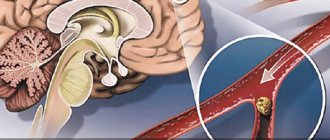An analysis of collected data from almost 300,000 people in the UK found that moderate daily coffee consumption not only had no detrimental effect on heart rhythms, but was even associated with a small reduction in heart rate, said Yoon Jung Kim, MD, at the Society's annual scientific sessions. heart rate tests conducted online due to COVID-19.
Her analysis found that, on average, each additional cup of coffee reduced the incidence of arrhythmias by a statistically significant 3% compared with those who drank fewer cups per day.
“The main message of our study is that there is no harm in continuing to drink moderate amounts of regular coffee in relation to the risk of overall arrhythmia,” said Dr. Kim, a cardiac electrophysiologist at the University of California, San Francisco.
Evidence of coffee safety
As for the effect on heart rhythms, this is not the first evidence of the absence of harm. For example, a recent report from the Physicians' Health Study of nearly 19,000 American men found a statistically significant reduction in the incidence of atrial fibrillation over a 9-year follow-up period among those who reported drinking one to three cups of coffee per day . Additionally, a recent analysis found that “regular consumption of caffeinated beverages, such as daily consumption of 2–3 cups of coffee or tea, is safe across a wide range of cardiovascular diseases, and may even be beneficial for diabetes mellitus, atherosclerosis, cardiac failure, arrhythmia, and overall mortality,” but we also concluded that “it is best to avoid acute consumption of high doses of caffeine, especially in the form of energy drinks.” Regarding cardiac arrhythmias, the report states that “although caffeine is commonly considered a trigger for arrhythmias by both physicians and patients, there is minimal evidence to support this misconception. Rather, caffeine is now associated with a mild reduction in the incidence of atrial fibrillation in observational studies.” “This has generated a great deal of public interest in the possible link between caffeine and arrhythmias, but the negative effects of drinking moderate amounts of coffee daily are more legend and anecdote than fact,” commented Andrew D. Krahn, MD, Physician, Professor of Medicine and Department Chair. in Cardiology at the University of British Columbia and St. Paul's Hospital in Vancouver. “Increasingly, we are discovering that there really is nothing dangerous about this,” he said in an interview.
What effect does caffeine have on the cardiovascular system?
Caffeine is the main substance in the drink, which underlies everything - both beneficial and harmful to the human body. The fewer deviations in health, the less chance of harming blood vessels when consuming it.
An initially healthy heart and the walls of blood vessels not clogged with cholesterol deposits are practically a guarantee that coffee will not cause any harm.
Positive Impact Aspects
Almost any natural product has many beneficial properties. And this alone gives reason to learn about the positive properties of natural coffee and its beneficial effects on the heart and the body as a whole.
- Contains potassium and magnesium. Coffee contains a lot of vitamins and microelements, including potassium and magnesium, which are vital for the heart muscle. See also the top 10 foods containing potassium.
- Reduces cholesterol. Both freshly ground and instant coffee are recognized as products that lower bad cholesterol levels in the blood.
- Fights infections and removes toxins. It is used in medicine, in particular, for certain infectious diseases, as well as if it is necessary to neutralize the effects of drugs, sleeping pills or poisons that suppress the central nervous system.
- Is a stimulant. It gives you the opportunity to cheer up when the body’s strength is running low. It stimulates brain function and affects physical and mental activity, so it is used not only as a tasty drink, but also as a natural energy product.
The invigorating drink has a number of properties that are an additional bonus for the body, in addition to its beneficial effects on the heart and blood vessels. This is first of all:
- antitumor substances that reduce the risk of developing cancer of the stomach, small and large intestine;
- substances that increase performance , mood, and prevent the development of stress even against the background of drinking alcohol, smoking cigarettes and an unfavorable social environment;
- prevention of diabetes, Parkinson's disease, asthma, liver cirrhosis and other diseases.
See also:
- 9 fruits and vegetables that are good for the cardiovascular system.
- Why nuts are important for the heart: what does the science say?
Negative aspects
Like any food product, it may have contraindications, as well as reasons for restriction.
- Inappropriate consumption of large quantities can cause dehydration , as it has a diuretic effect. This has a bad effect not only on tone in general, but also on the cardiovascular system. But knowing that about half an hour after drinking a cup of drink you need to drink a glass of drinking water, the problem can be easily avoided.
- It flushes calcium and some other microelements from the body , which are necessary for the proper functioning of the cardiovascular system. This can be prevented by adding natural milk or cream.
- With a sharp change in diet and the abolition of regular coffee consumption, the body can respond with depression of the physical and mental state: loss of strength, increased drowsiness, decreased physical and mental activity, hypotension and even real depression.
- Caffeine-containing products can aggravate symptoms of existing medical conditions.
The drink is strictly contraindicated for:
- stomach ulcers and other inflammatory processes in the gastrointestinal tract;
- renal failure;
- neuralgic diseases.
The different effects of the drink are related to the dosage and methods of its preparation. However, it is a myth that this drink can and does kill our heart.
What does this mean?
Although the main finding is that moderate daily coffee consumption does not contribute to AR, based on a small but statistically significant reduction in the number of new cases, Dr. Kim added. “Numerous studies have shown that caffeine and other constituents of coffee have antioxidant and anti-inflammatory properties. Numerous studies report the potential benefits of coffee for multiple chronic diseases, such as cardiovascular disease, diabetes and some types of cancer, and coffee reduces overall mortality."
"It is likely that moderate amounts of coffee consumed per day will not lead to large physiological changes, but may be associated with other characteristics" that lead to average or better results, Dr. Krahn commented. "These results add to existing evidence" that confirms that moderate coffee consumption is not harmful, he said. https://www.medscape.com/viewarticle/930195#vp_1
Contraindications
Despite the fact that the danger of drinking coffee is greatly exaggerated and is primarily related to the dosage of the substance, there are some cases when it is better to limit the drink.
- Children and old age. It is undesirable to use a strong stimulant both in adulthood and in baby food. In the first case, there are many disruptions to the body’s vital functions, and it does not need unnecessary stimulation. In the second, the functionality of the organs has not yet been developed, and caffeine is also not needed in childhood.
- Pregnancy and lactation. The effect of caffeine on child development has been little studied. But there are observations that indicate that caffeine in large quantities can cause fetal pathologies or lead to the birth of a child with reduced weight. But 1 cup a day will give the expectant mother pleasure and will not harm the baby. During breastfeeding, you should completely give up your favorite drink for a while, since the period of breastfeeding is one of the most hectic for mothers. And if the child’s increased excitability is added to the load of frequent feedings, then this will not benefit anyone.
- Ulcer and gastritis. The digestive tract is the first to take the hit. And even if the drink is natural, made from grains, and does not contain any unnecessary or dangerous additives, it still has high stomach acidity and has a strong effect on the gastrointestinal tract.
- Sick kidneys. Diseases of the excretory system weaken the kidneys. The diuretic effect and stimulation are not needed by these organs during an exacerbation.
- Glaucoma. The presence of this disease is a complete contraindication to drinking coffee.
Also beware of coffee addiction, which we discussed in more detail in a separate article.
In what cases is coffee intake limited?
Periodic consumption of the drink and other products containing caffeine does not pose a threat to human health. However, systemic exposure to the active substance causes the presence of contraindications:
- Pregnancy - intrauterine development of the fetus depends on the adequacy of the delivery of nutrients through the placenta with the mother's blood. With frequent consumption of coffee and regular spasm of all blood vessels, fetal hypoxia occurs - the cause of congenital pathologies.
- Systemic atherosclerosis in older people - when exposed to caffeine, a vessel affected by atherosclerosis contracts, a plaque ruptures and a free particle (embolus) enters the bloodstream. The most dangerous consequence of embolism is blockage of the arteries of the brain (ischemic stroke) or coronary vessels (myocardial infarction).
- Angina pectoris (pain behind the sternum) is a symptom of ischemic myocardial damage. The chain between heart pain and coffee is realized through an additional spasm of damaged blood vessels after drinking the drink.
- Hyperacid gastritis and gastric ulcer - caffeine stimulates the secretion of hydrochloric acid in the organ, which has a destructive effect on the mucous membrane. Discomfort and pain in the upper abdomen are characteristic symptoms of gastropathy.
How much is acceptable to consume?
Since the study of the drink does not stand still, both nutritionists and doctors are constantly changing their point of view regarding its dosage for different people, depending on the age and condition of the body.
Recent studies by Russian and foreign doctors and biologists have shown that drinking 2-4 cups per day is definitely safe.
If desired, 1 cup of coffee with milk can be drunk even by children starting from 10-12 years old, and by pregnant and lactating women, if they are used to it before pregnancy and there are no other contraindications (kidney failure, inflammation of the gastric mucosa, etc.)
Is instant coffee harmful to health?
To produce the soluble variety, cheap and often low-quality varieties of grains are used. Also, coffee dust, over-roasted beans and other waste from the production of the product can act as raw materials. The resulting composition is ground and treated with boiling water at high pressure. The mixture is then filtered and sprayed in special tanks. During this process, drops of the mixture freeze and transform into the usual soluble powder.
The product manufacturing technology includes a large number of manipulations that have a negative impact - all the beneficial substances of the grains are destroyed. To obtain a traditional taste and aroma, chicory, flavorings, dyes and other artificial stabilizers are added to the mixture.
Unlike most beneficial substances found in beans, caffeine is retained even after prolonged processing. Therefore, in an instant drink its content is much higher (80 g per cup) than in a brewed drink (60 mg per cup).
What is decaffeinated instant coffee made from?
Research conducted in the 2000s suggested that caffeine-free drinks are healthier than caffeine-containing drinks. Therefore, the demand for decaffeinated drinks has sharply arisen. According to the laws of economics, after demand arose, supply also appeared. The processing technology and specificity of the beans allows only green varieties to be decaffeinated. To remove this substance from the composition, treatment technology is used with a special solvent - ethyl acetate. You should know that this substance is used to make stains against insects and to produce artificial leather. Manufacturers guarantee that this substance does not remain on the grains, but many unscrupulous companies pay insufficient attention to this issue.
When choosing these types of product, you should remember:
- The substance is still present in the composition, since it cannot be completely removed.
- The composition may contain a chemical solvent.
- When taken without caffeine, the amount of free fatty acids in the blood may increase.
Clotting
Coffee is contraindicated only if you have a tendency to bleed (Photo: pixabay.com)
Studies have found a negligible effect of coffee on blood clotting. It is not so great as to recommend the drink for the prevention of stroke and blood clots. But it is not so insignificant that it could be used for hemophilia (coagulation disorders and tendency to bleeding), on the eve of operations and before childbirth.
So if you do not have blood pathologies and are not planning surgery in the near future, you can drink the drink without fear.
Can it cause chest pain?
Many drinkers have noticed pain under their left shoulder blade after drinking it.
But very often people have a number of health problems that they are not even aware of, but the symptoms of which are similar to heart pain. If a person drank a coffee drink and had a chest pain, this could result in illnesses such as:
- neuralgia;
- stomach ulcer;
- gastritis;
- pancreatic diseases, etc.
If these problems are excluded by doctors, then it is necessary to understand the answer to two important questions.
Why is this happening?
By affecting the central nervous system, caffeine can cause:
- increased excitement,
- increased heart rate,
- increased blood pressure
- and, as a result, heart problems.
Most often this occurs due to exceeding the permissible dose of consumption . Symptoms appear when a person drinks regularly 5-6 cups a day or after the usual normal dose, but in a state of any stress on the body (lack of sleep, acclimatization, increased fatigue, etc.).
What to do if pain has already appeared?
Is it possible to drink coffee if you already have chest pain? If, as a result of drinking the drink, tachycardia appears, the person begins to feel short of breath, or dizziness appears, you need to stop drinking the drink. In this case it is necessary:
- place it at a high angle, for example, on a high pillow;
- ventilate the room;
- give half a liter of clean and still water to drink in small sips;
- give the opportunity to rest for a few minutes.
If such attacks occur repeatedly , it is necessary to consult a cardiologist to rule out serious diseases of the cardiovascular system. During the period of examination, it is better to replace the usual taste with a very similar one: high-quality chicory will not only not harm the heart, but will also significantly improve the health of the entire body.
Video on the topic
Also check out the video below:
Properly prepared (not soluble!), consumed regularly, but in small doses (1-4 cups per day depending on age, lifestyle and health), it can not only deliver a lot of positive emotions, but also prevent many severe and even fatal diseases.
This applies to the entire body and the cardiovascular system, with the exception of a narrow range of pathological conditions. Coffee for the heart, when handled correctly, prevents diseases and maintains vitality.




